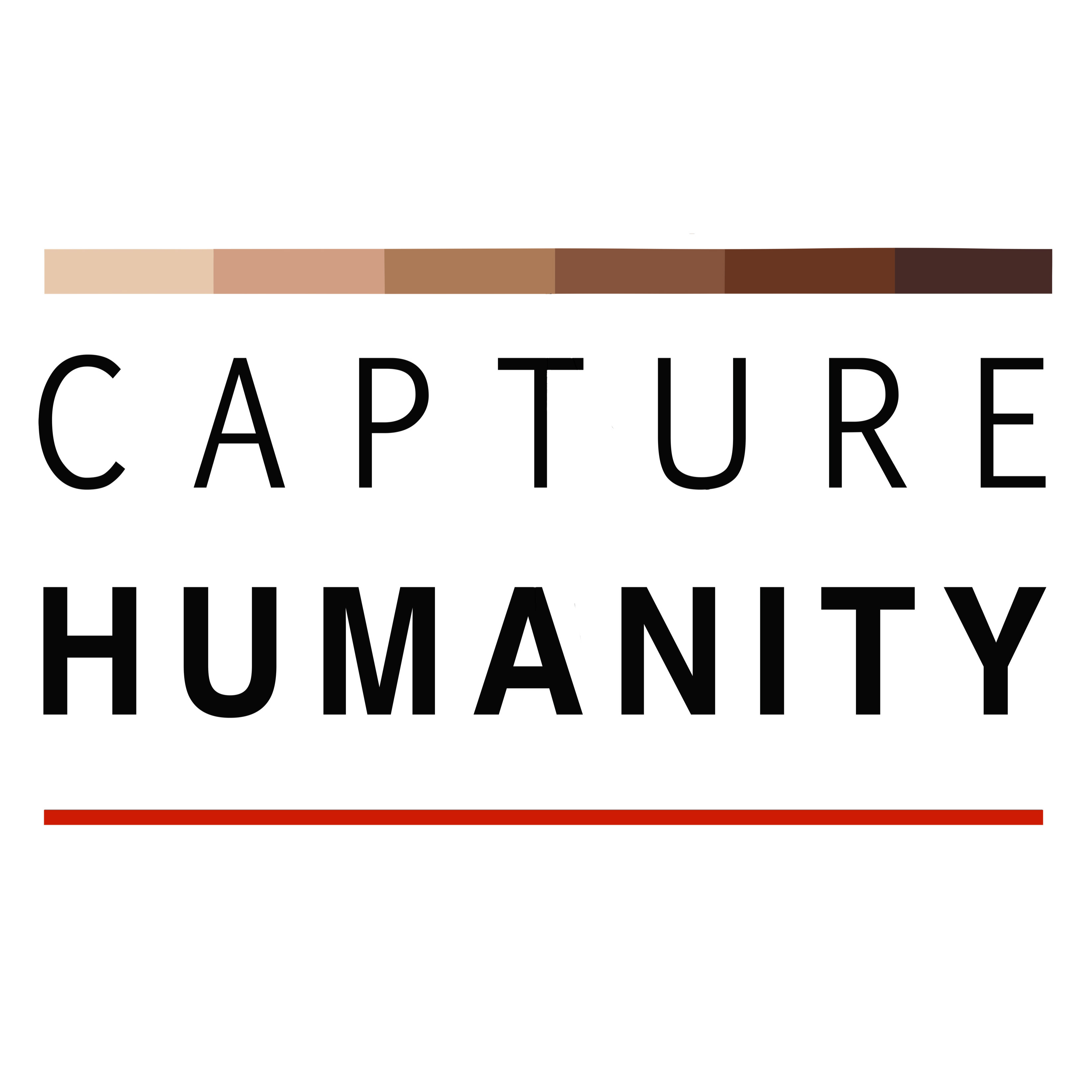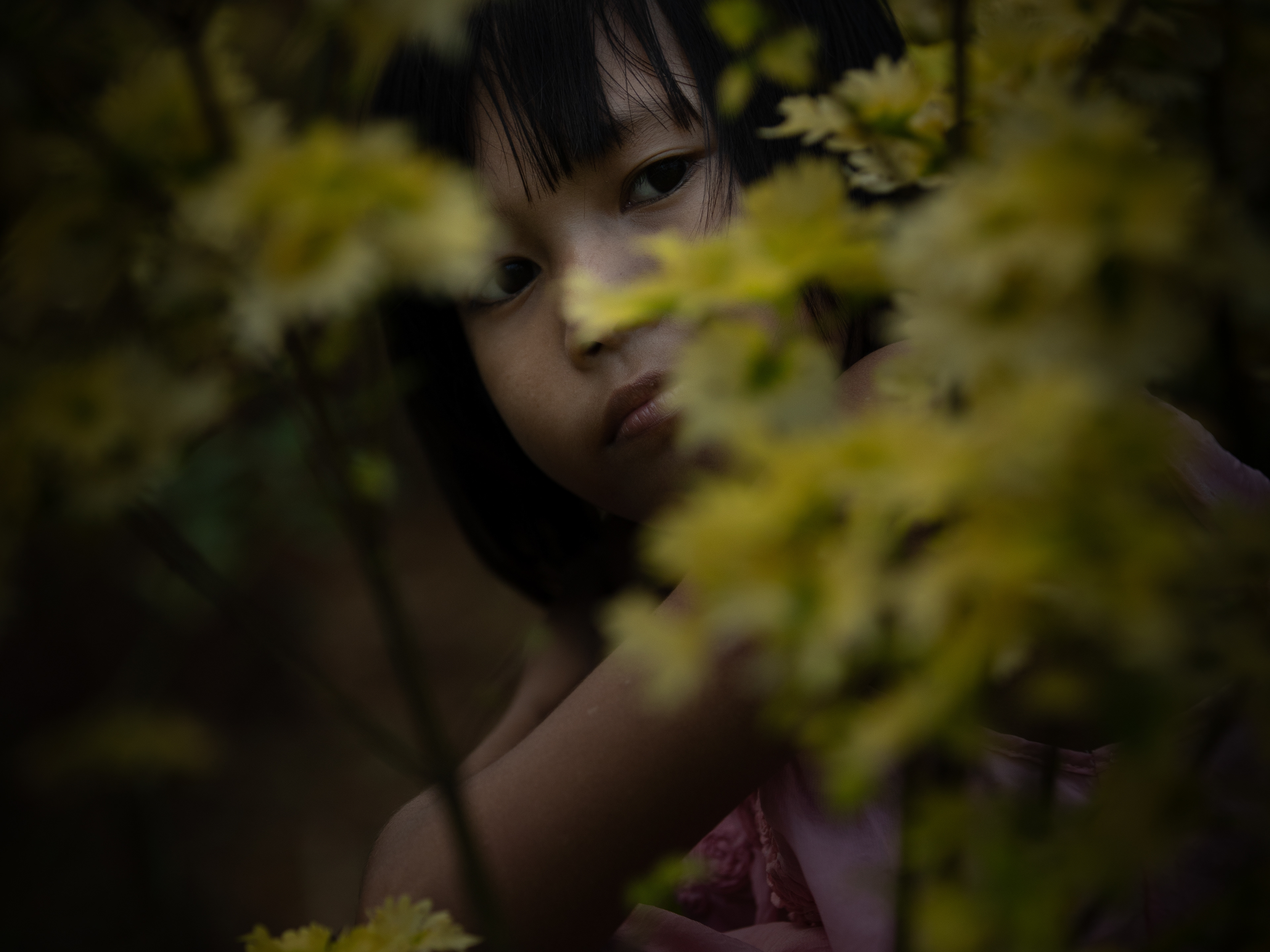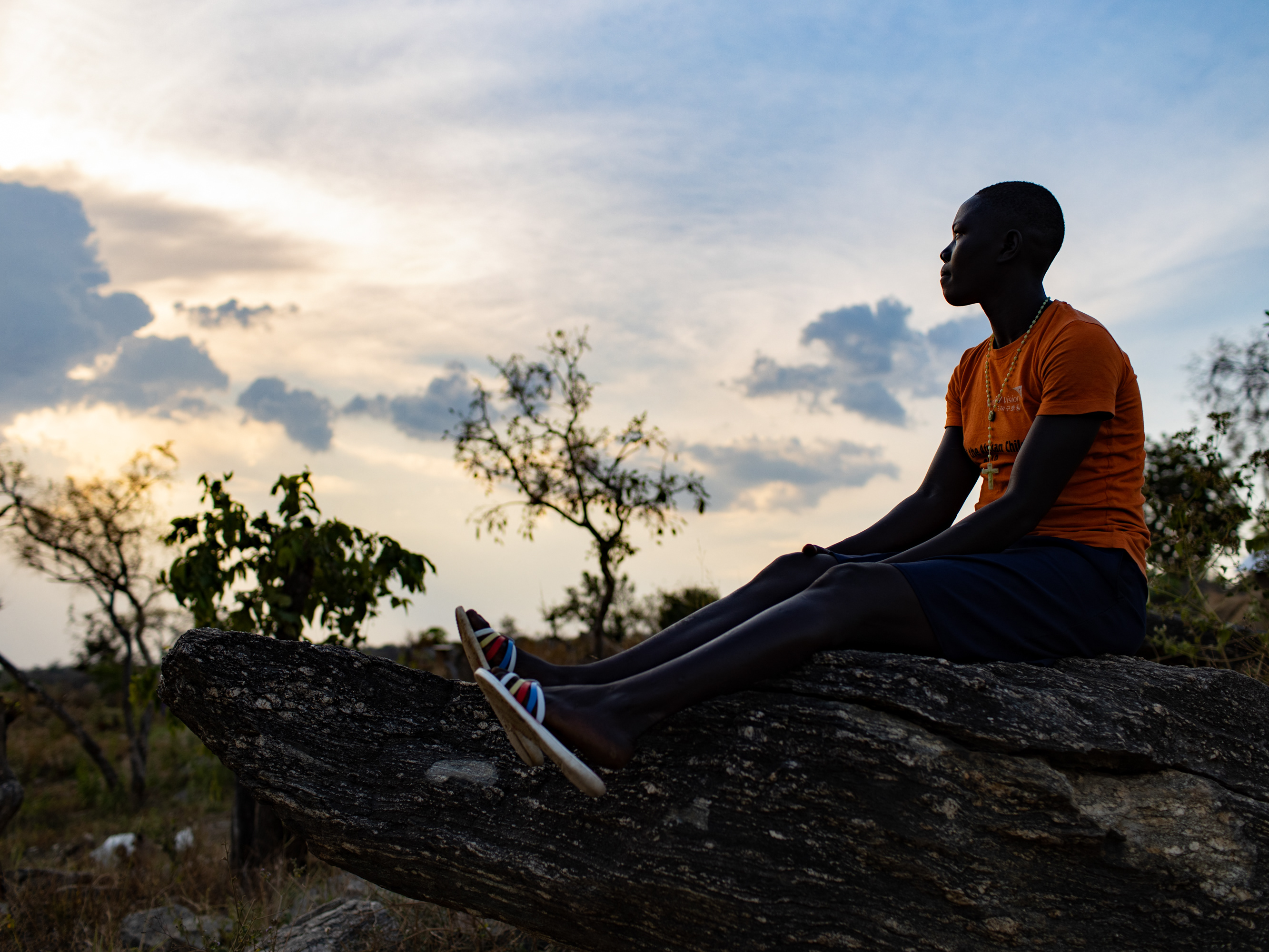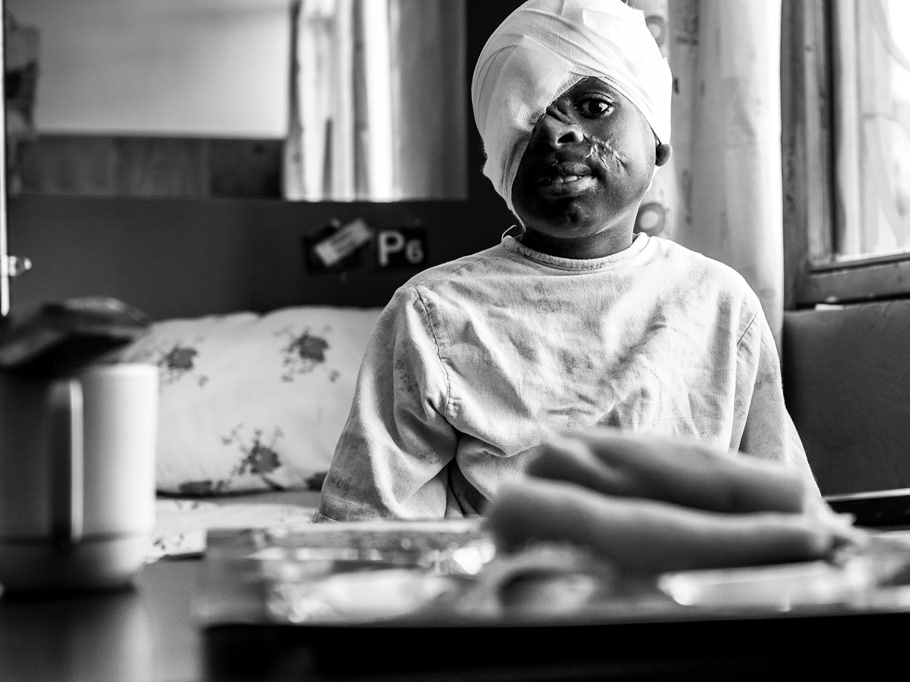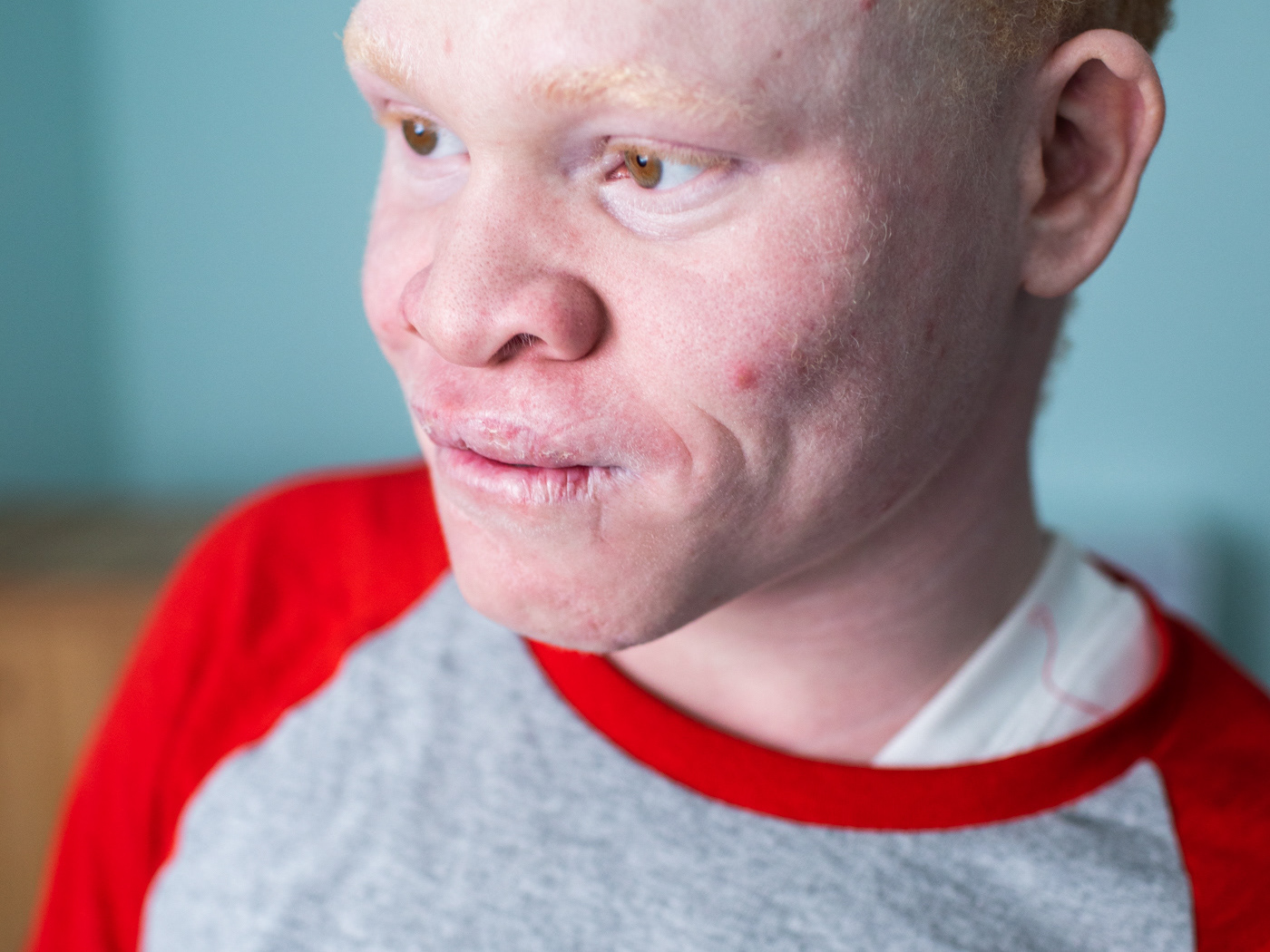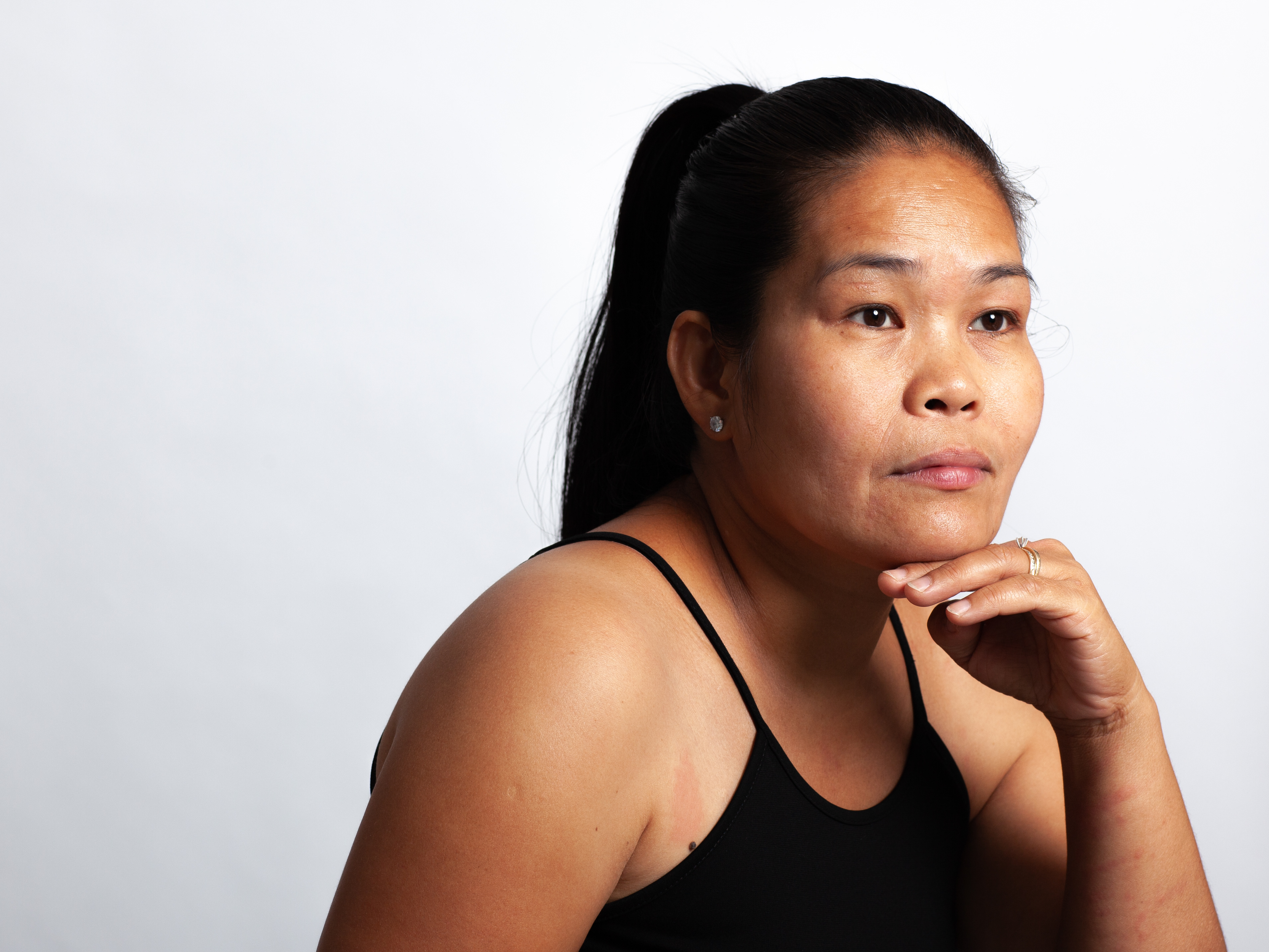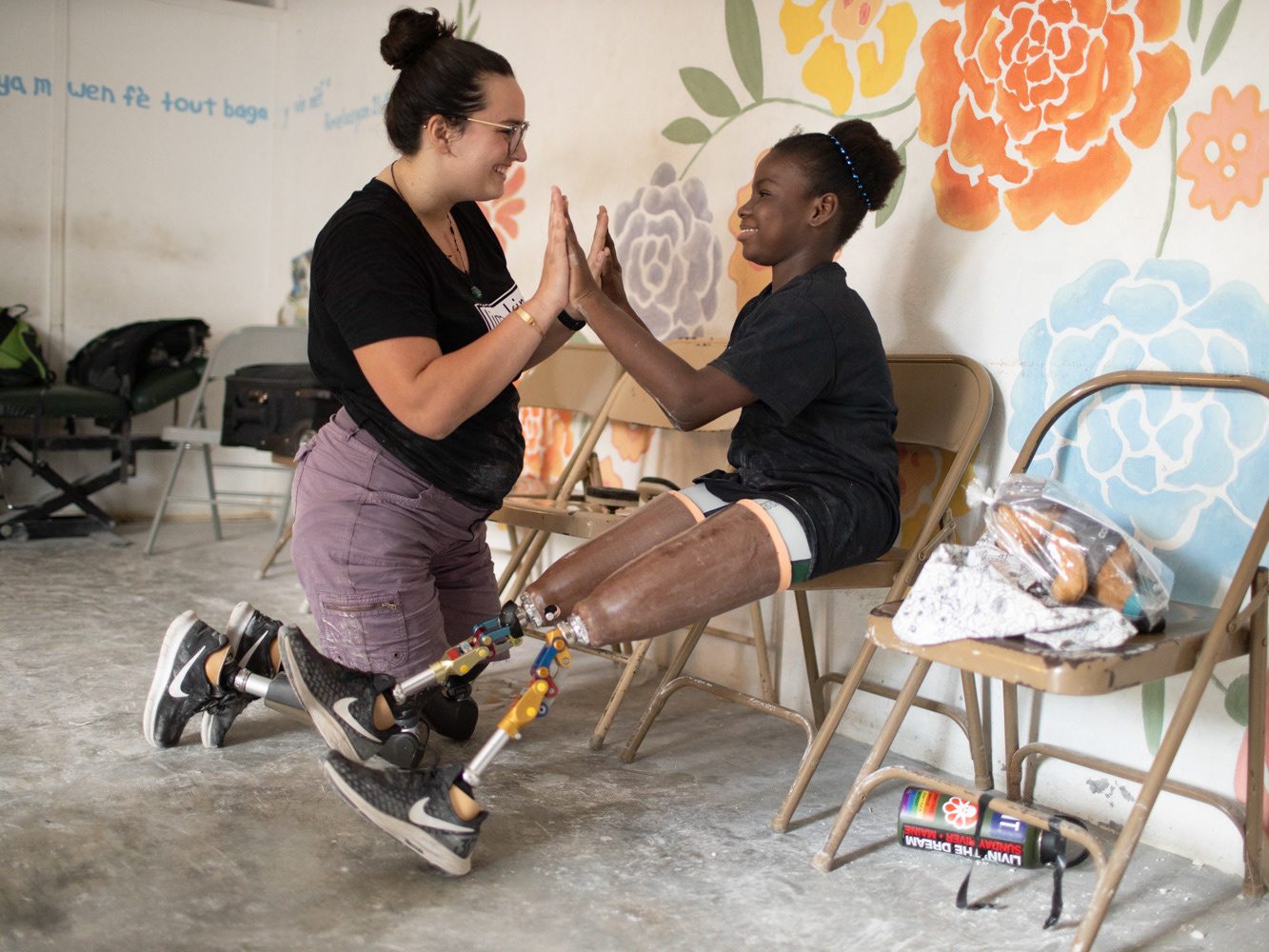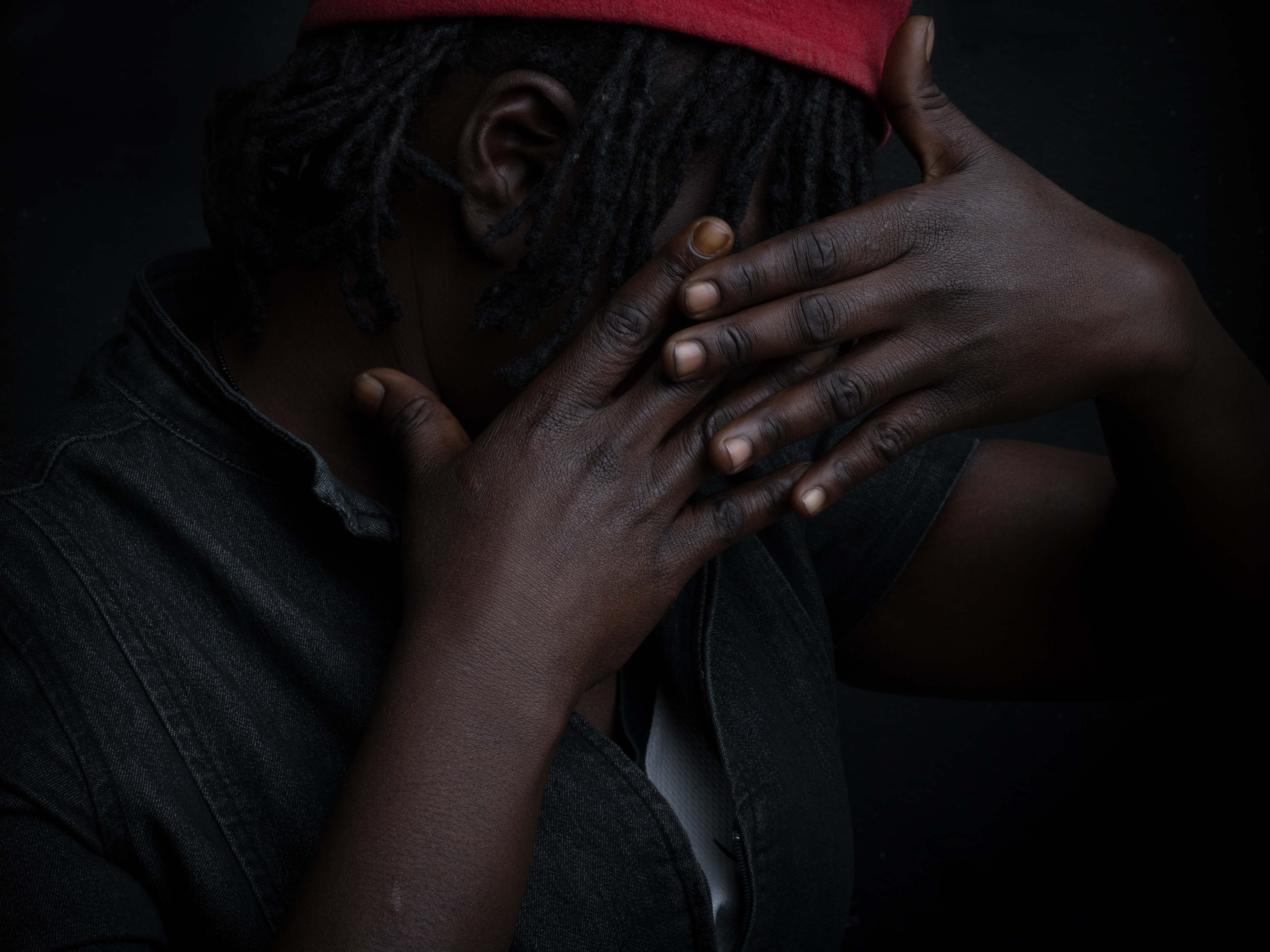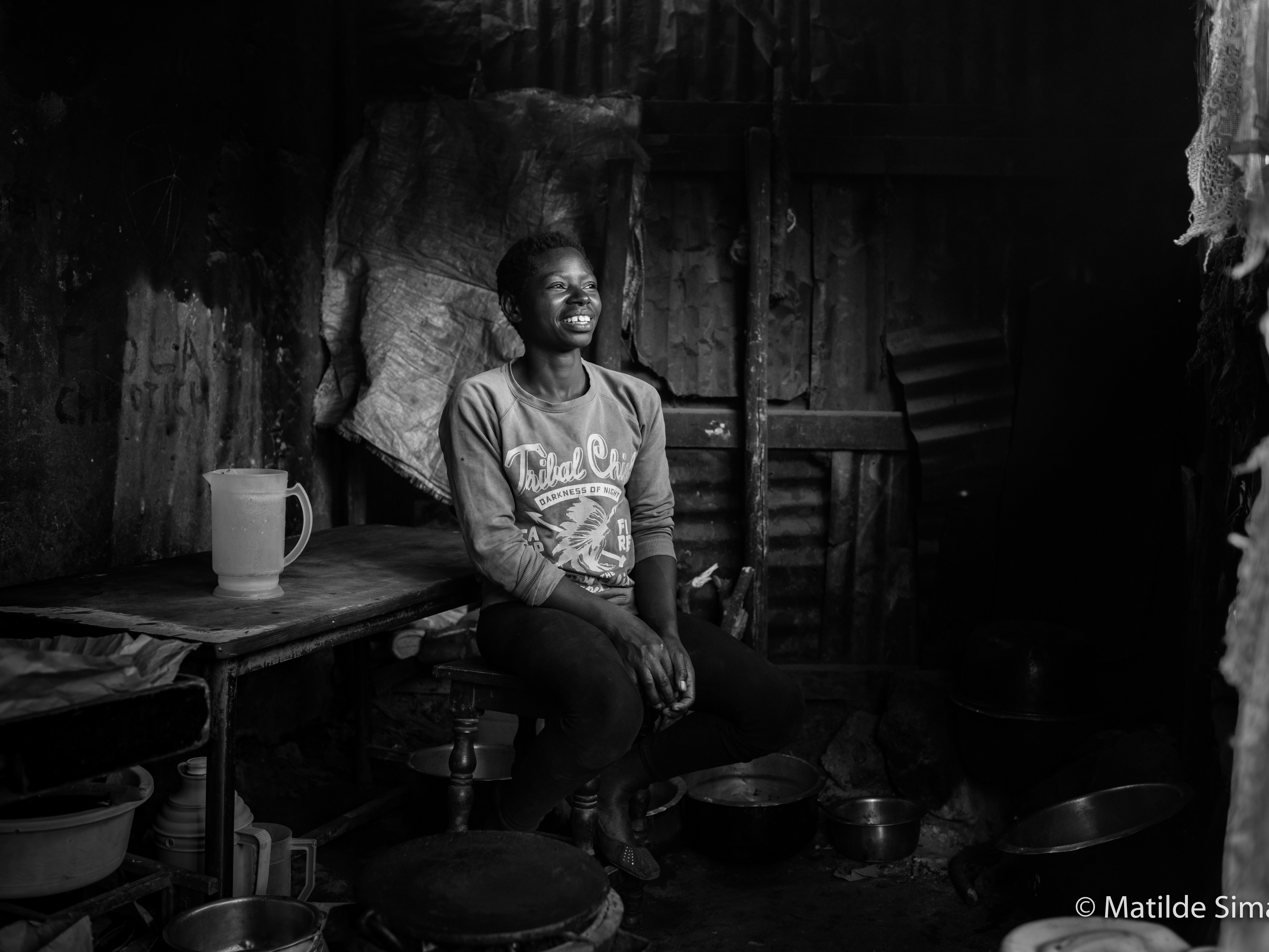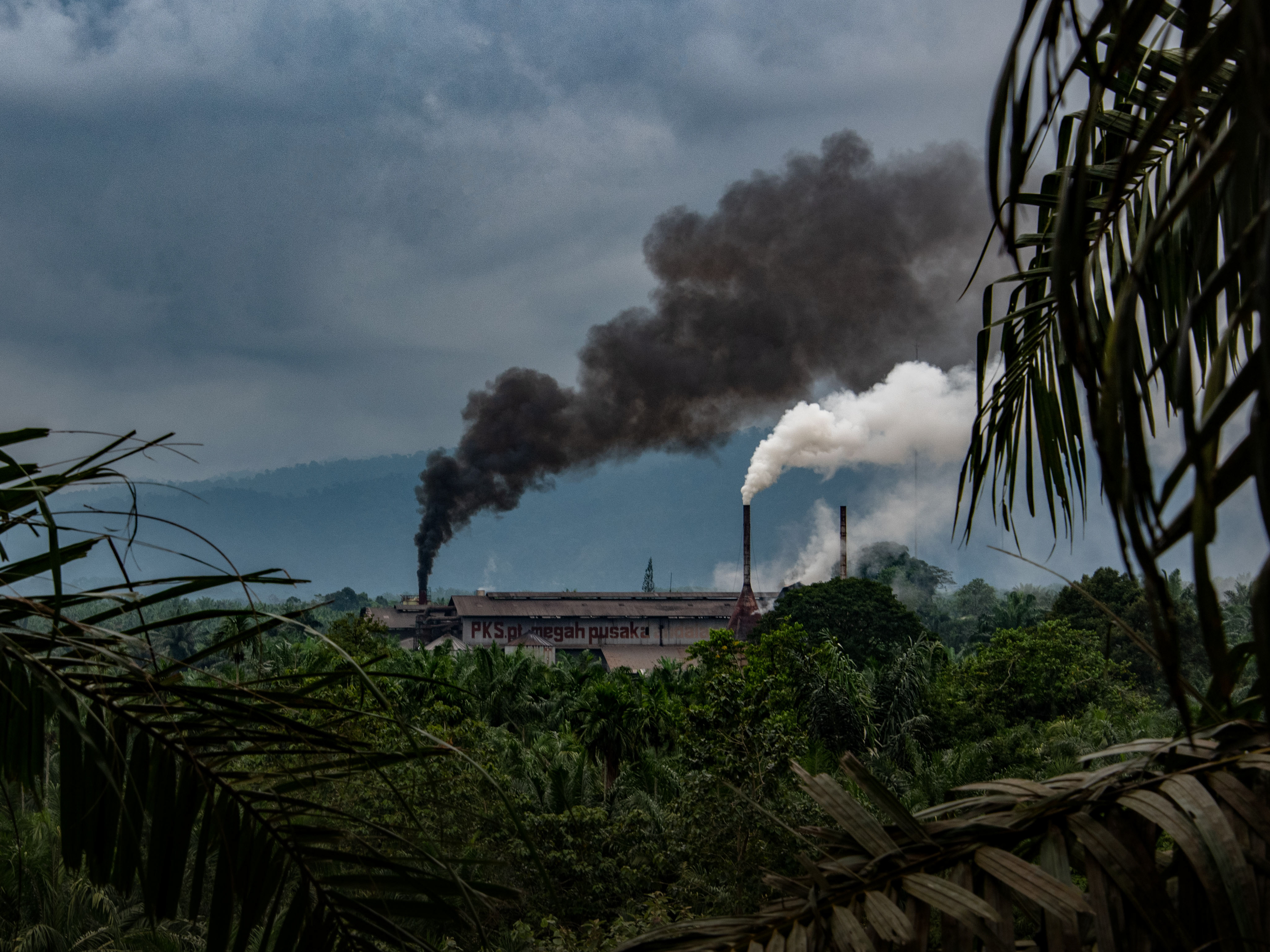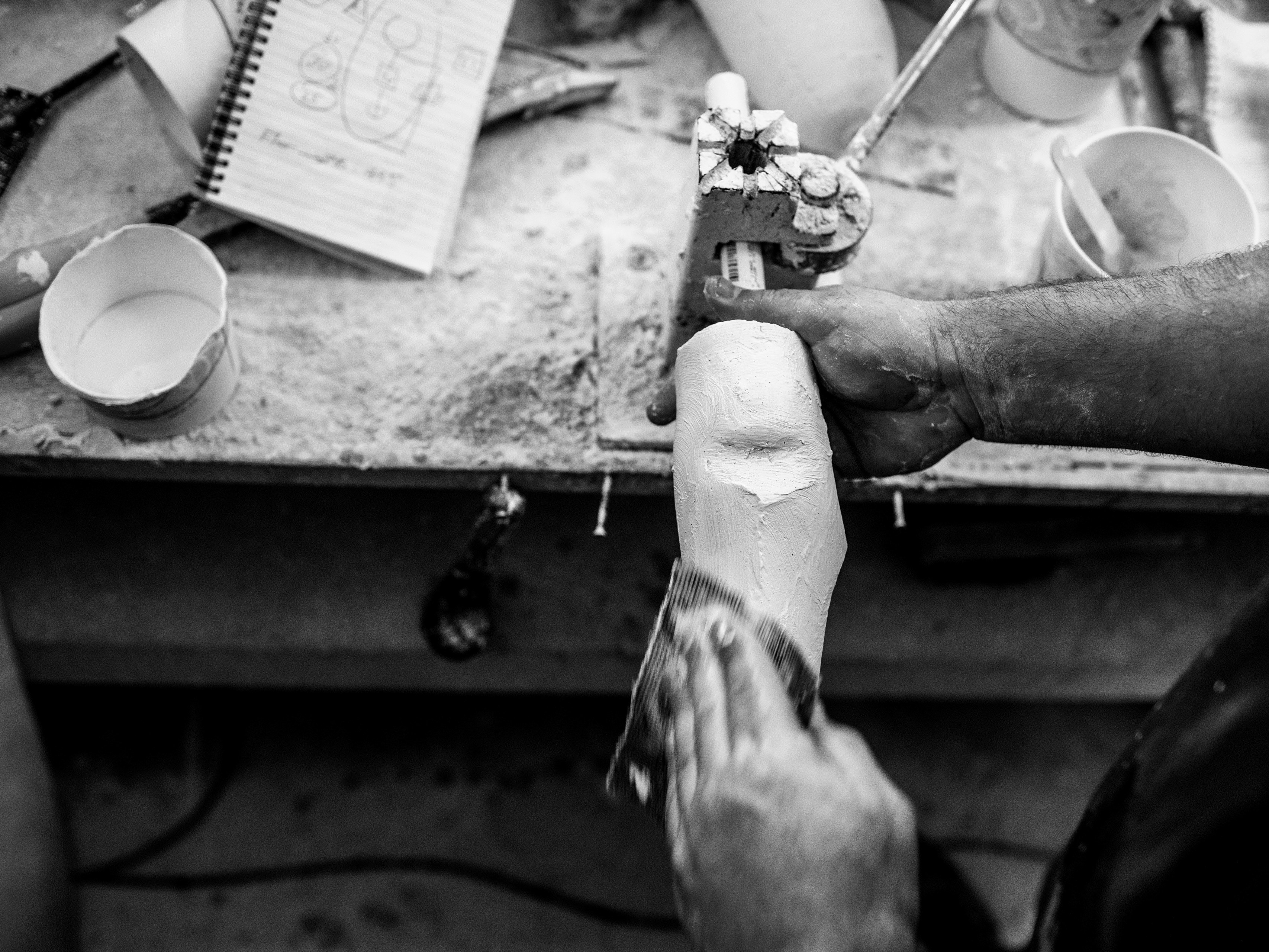"Living is worthless without a Home" is a documentary series on the lives of previously oppressed but presently determined and overcoming individuals. It is about the dignity to be found in the dusty arid streets of Uganda's Imvepi refugee housing settlement. While these people obviously don't take pleasure in the poverty they live in, they stand proud in the face of it. These are people who are doing the best they can with the little they have.
In 2013, conflict broke out in South Sudan, leading to a complex and dangerous situation of armed conflict, economic decline, disease and hunger. With thousands of new arrivals fleeing to Uganda every day, South Sudan is now Africa’s largest refugee crisis. According to the Yale MacMilliian Center, “More than 1.5 million South Sudanese refugees have fled to neighboring countries in the region, around half of which are located in Uganda.”
Upon arrival, refugees receive a plot of land on which to build their new homes and grow crops. As refugees they are also free to access public services, such as access to clean water, food-aid, healthcare, and education. Uganda is one of the most welcoming countires in the world for refugees, according to the UNHCR. While many countries keep refugees in camps away from citizens, Uganda allows them to set up businesses, work for others, and move freely around the country.
It is commendable the generosity of Uganda for donating the land for the Imvepi Refugee Settlement. This gesture is an exceptional display of solidarity with people who have been forced to leave everything behind due to war and conflict.
Amana Cicila, a 20-year old trauma survivor and single mother from South Sudan, sits in front of her house built with the assistance of UNHCR in the Imvepi Refugee Settlement in Uganda on February 13, 2020. Amana traveled for 2 weeks to the border to reach the Imvepi Refugee Settlement. Upon reaching Uganda, she says, "I felt welcomed and supported." She describes the settlement as being “peaceful.”
One of Amana's challenges in the settlement is collecting water. “There is always a shortage. This makes life inconvenient because you cannot plan your day. It delays cooking, washing, and life itself. Sometimes water is delayed for 3 to 4 days. Walking to retrieve water is also a burden. At times I have to walk 2 kilometers. She stated, walking to retrieve water is safe as long as you are not standing in line into the night. Walking home with water at night for any women is not safe."
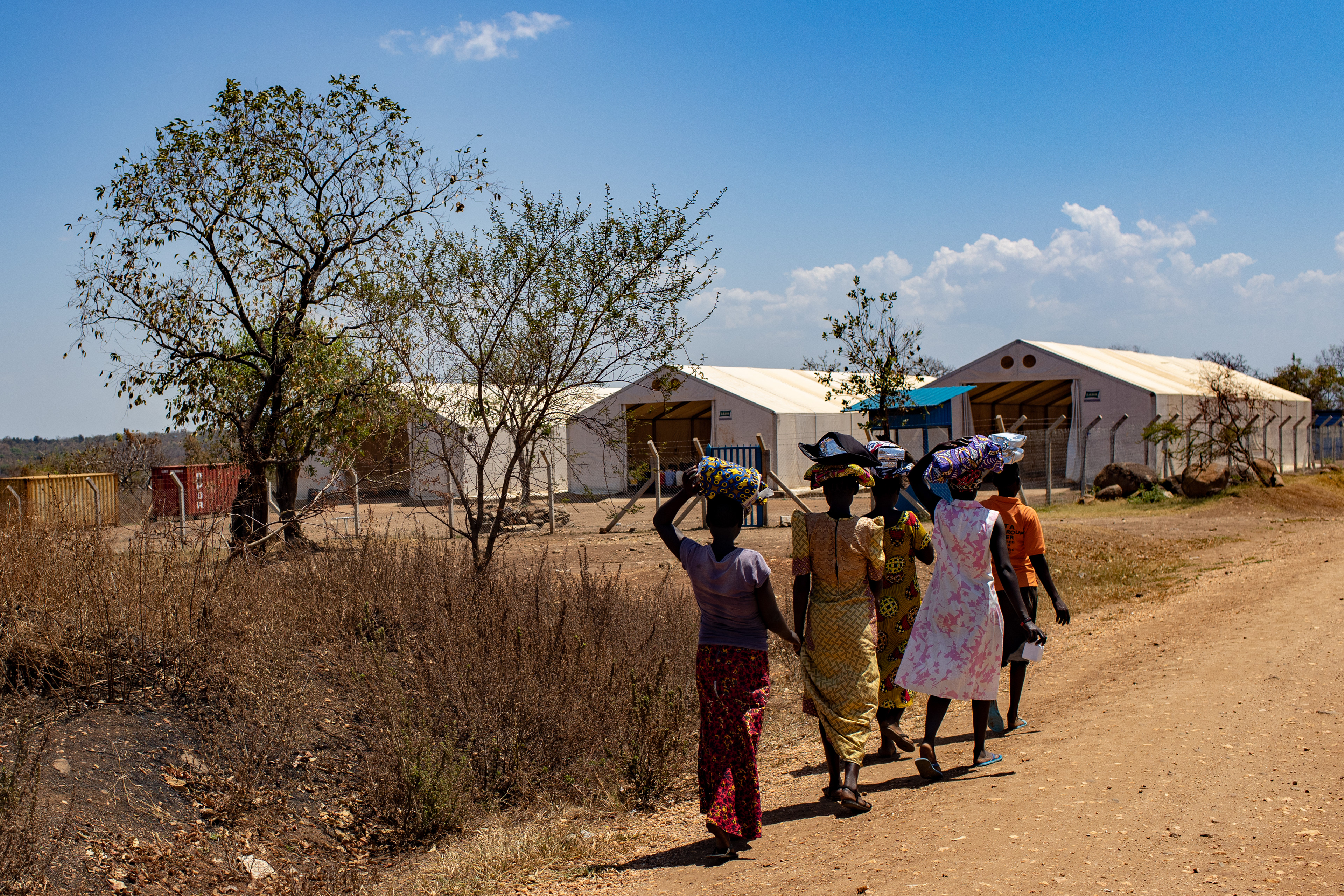
Women walking to the World Food Organization Program in Imvepi Refugee Settlement.
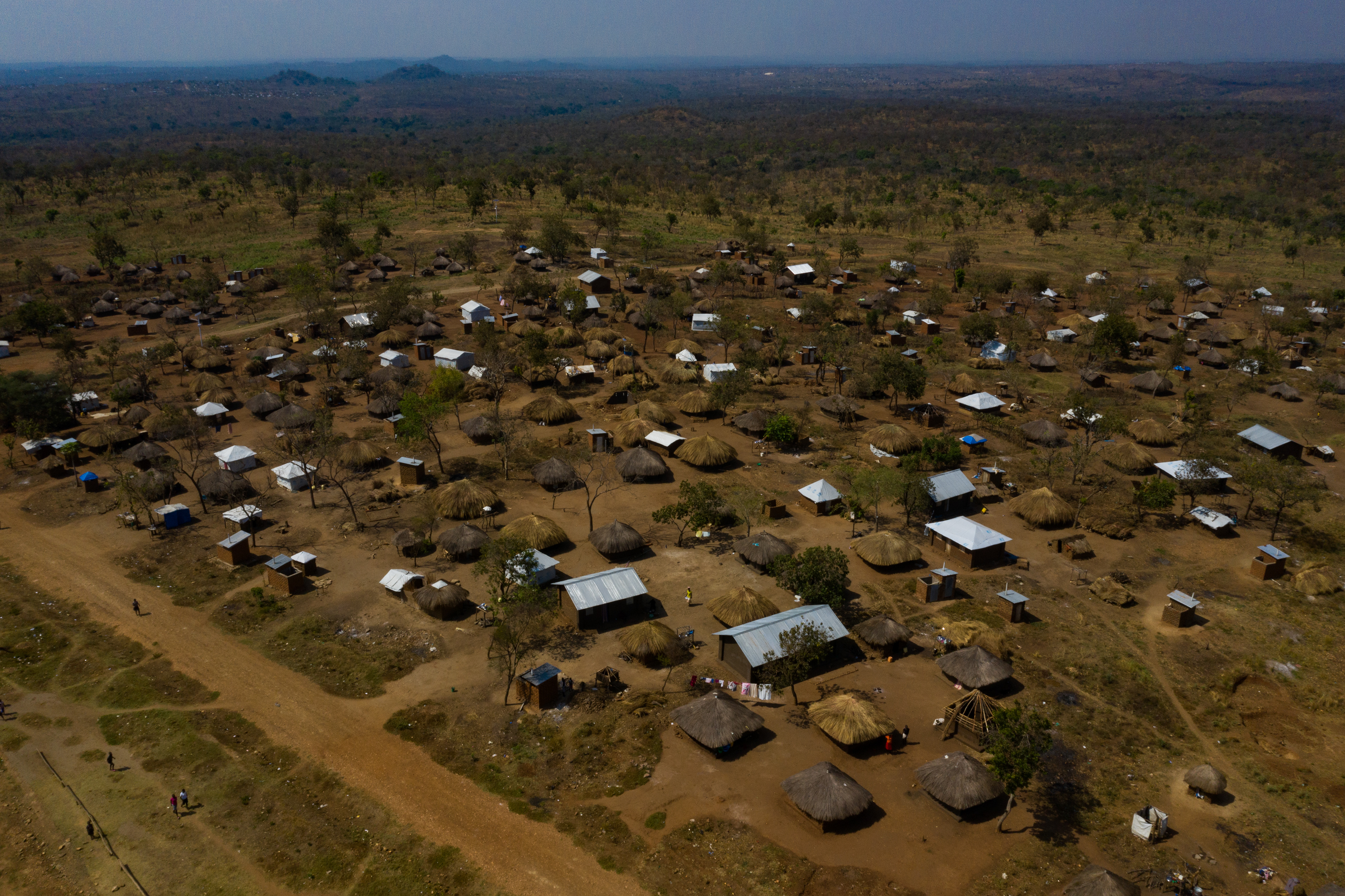
Imvepi Refugee Settlement in Northern Uganda.
Women walk to the World Food Program in the Imvepi Refugee Settlement in Northern Uganda.
Small child carries water container to collect water at a water station 2 kilometers away in the Imvepi Refugee Settlement in Northern Uganda on February 2020.
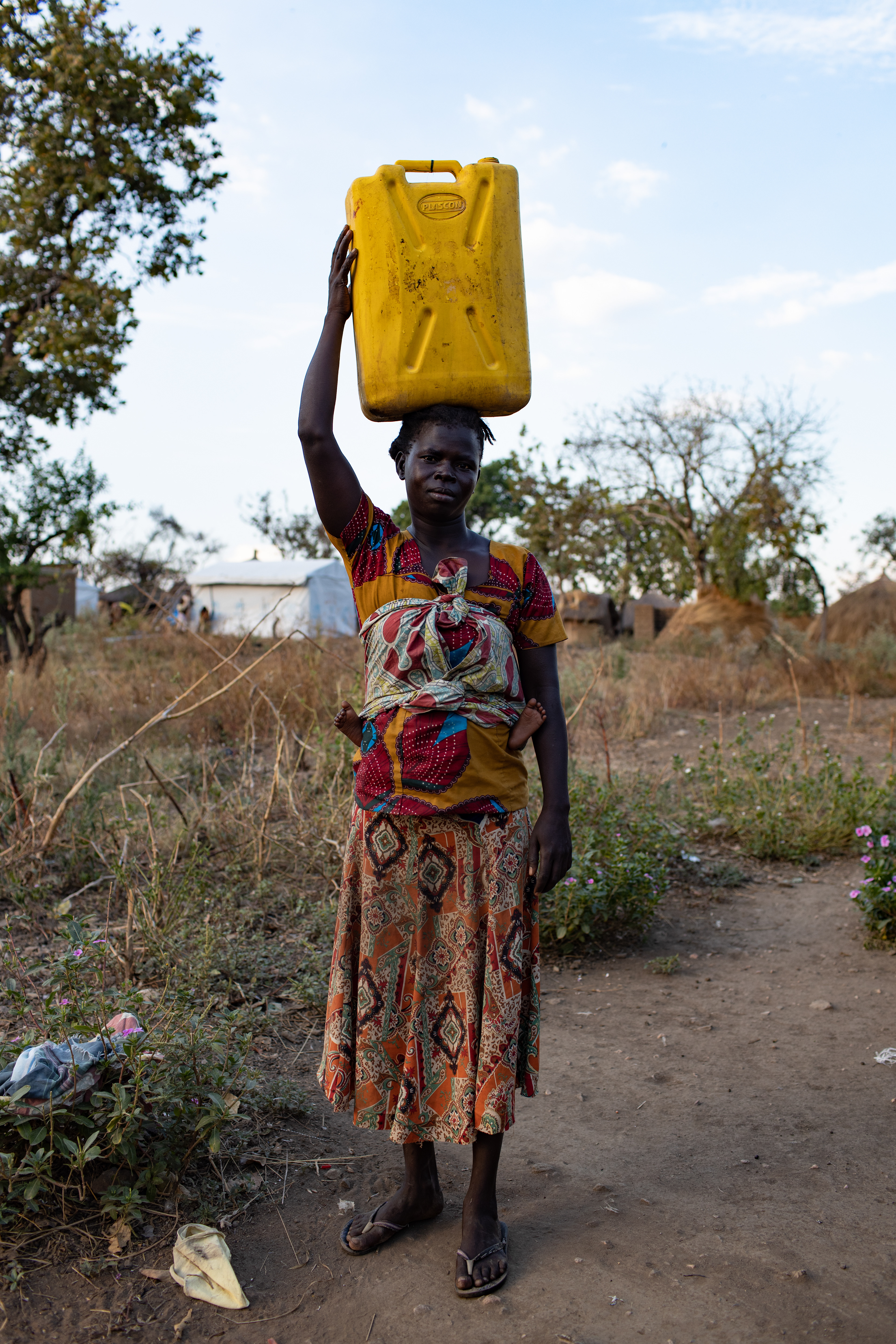
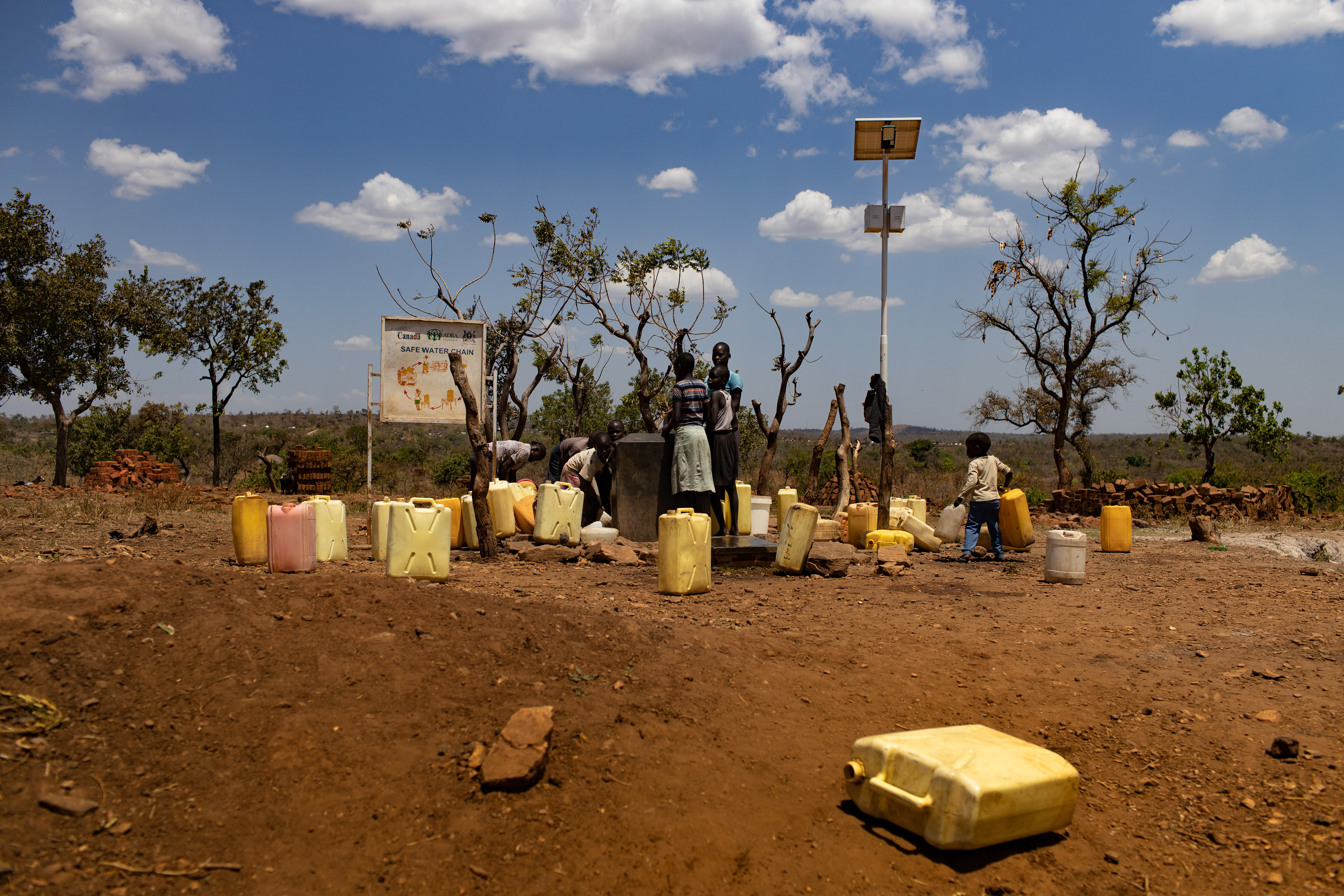
A women and children collect water at a water station in the Imvepi Refugee Settlement in Northern Uganda, February 2020.
Children play soccer at school in the Imvepi Refugee Settlement in Northern Uganda on February 2020.
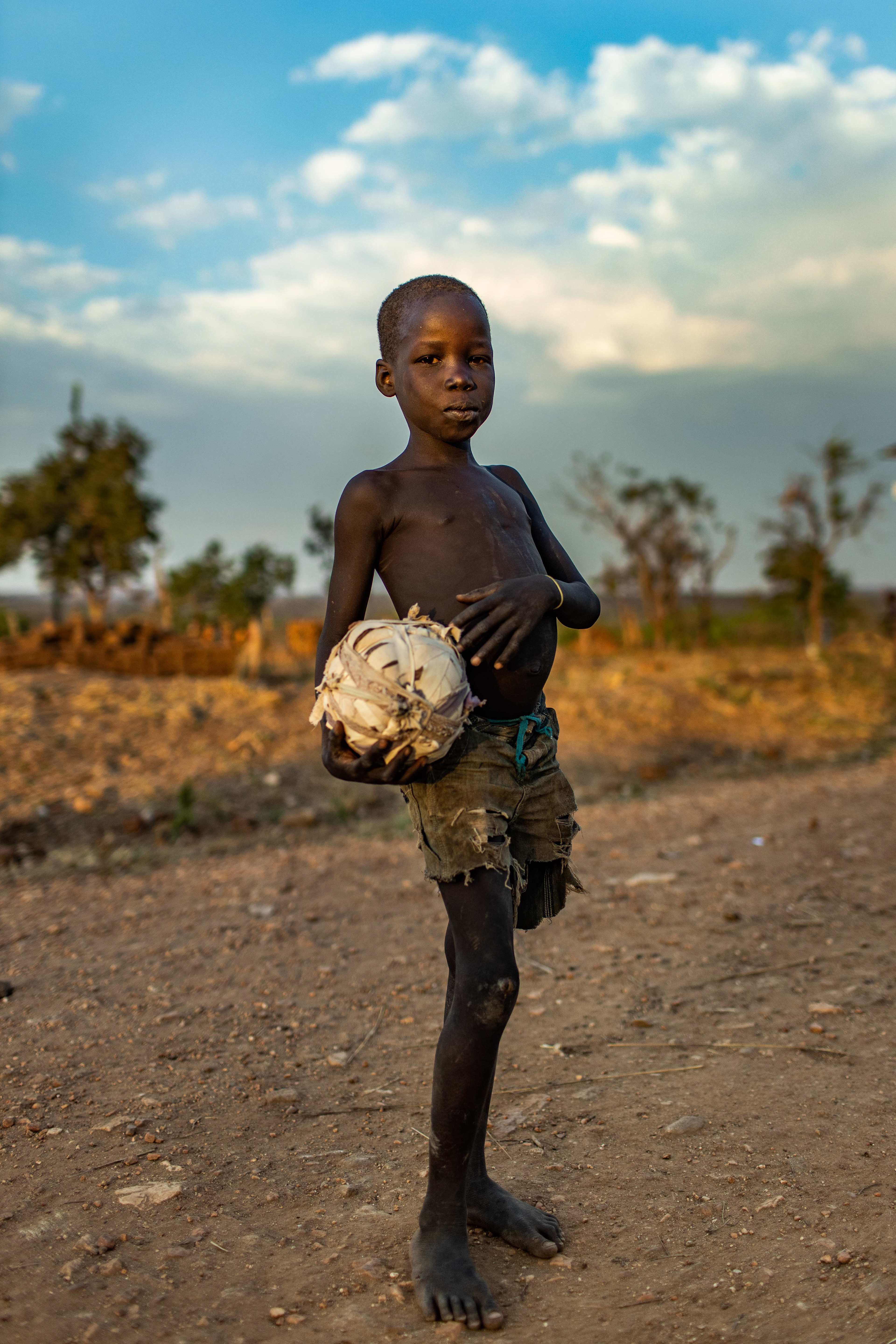
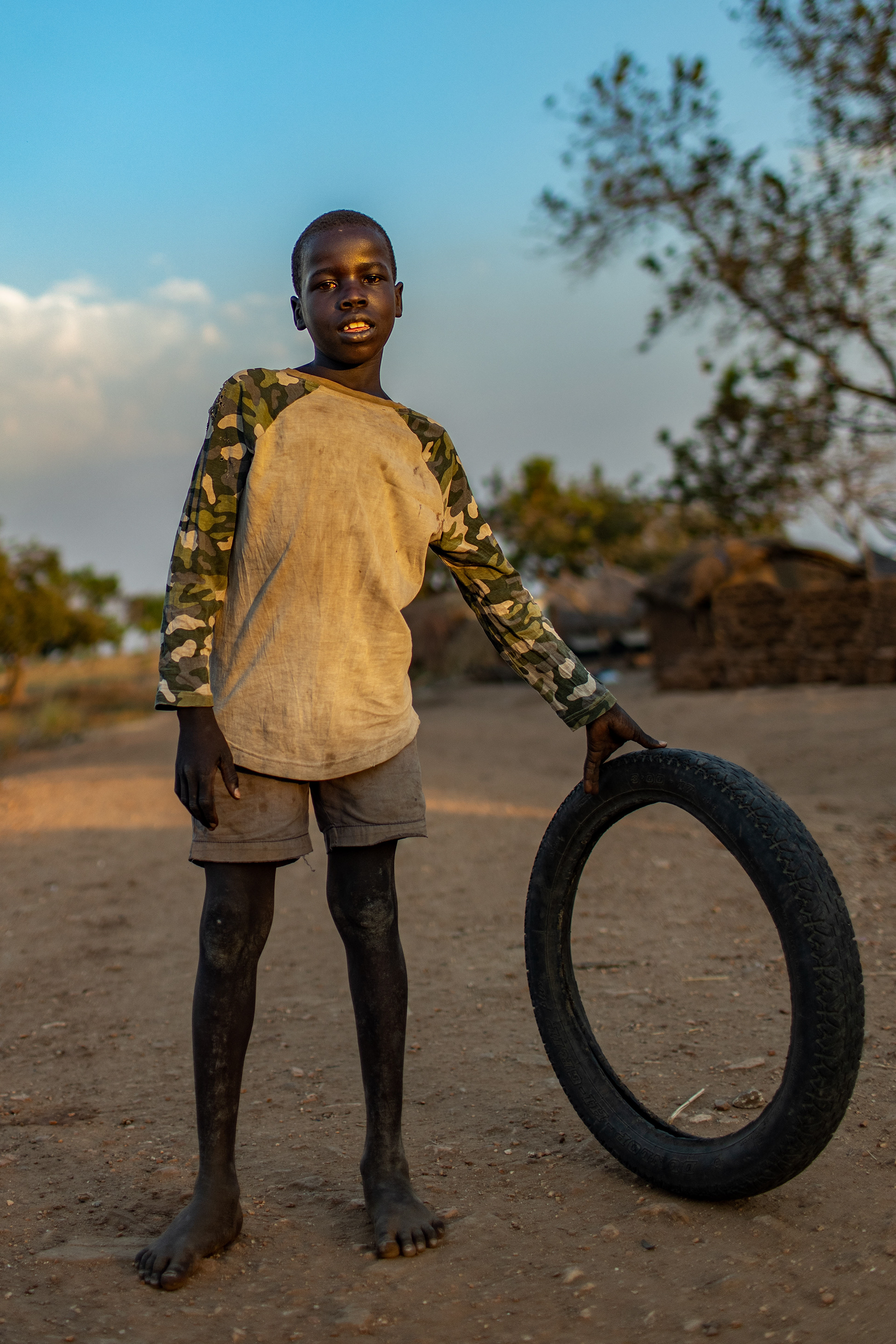
Ten and twelve-year old South Sudanese boys play with a self-made ball and rubber tire in the Imvepi Settlement, Uganda on February 15, 2020.
A UN Refugee Agency report states that across the globe there are 68.5 million people are displaced. 25 million of them are refugees, and children constitute about half of the refugee population. This means millions of children are deprived of access to adequate early childhood development opportunities. Although there are many playgrounds in the Imvepi settlement. Many children cannot access them due to their distance. I found many children like this boy happily playing with handmade balls like the one in his hand. He explained, he made the ball with plastic scraps which he tied.
A UN Refugee Agency report states that across the globe there are 68.5 million people are displaced. 25 million of them are refugees, and children constitute about half of the refugee population. This means millions of children are deprived of access to adequate early childhood development opportunities. Although there are many playgrounds in the Imvepi settlement. Many children cannot access them due to their distance. I found many children like this boy happily playing with handmade balls like the one in his hand. He explained, he made the ball with plastic scraps which he tied.
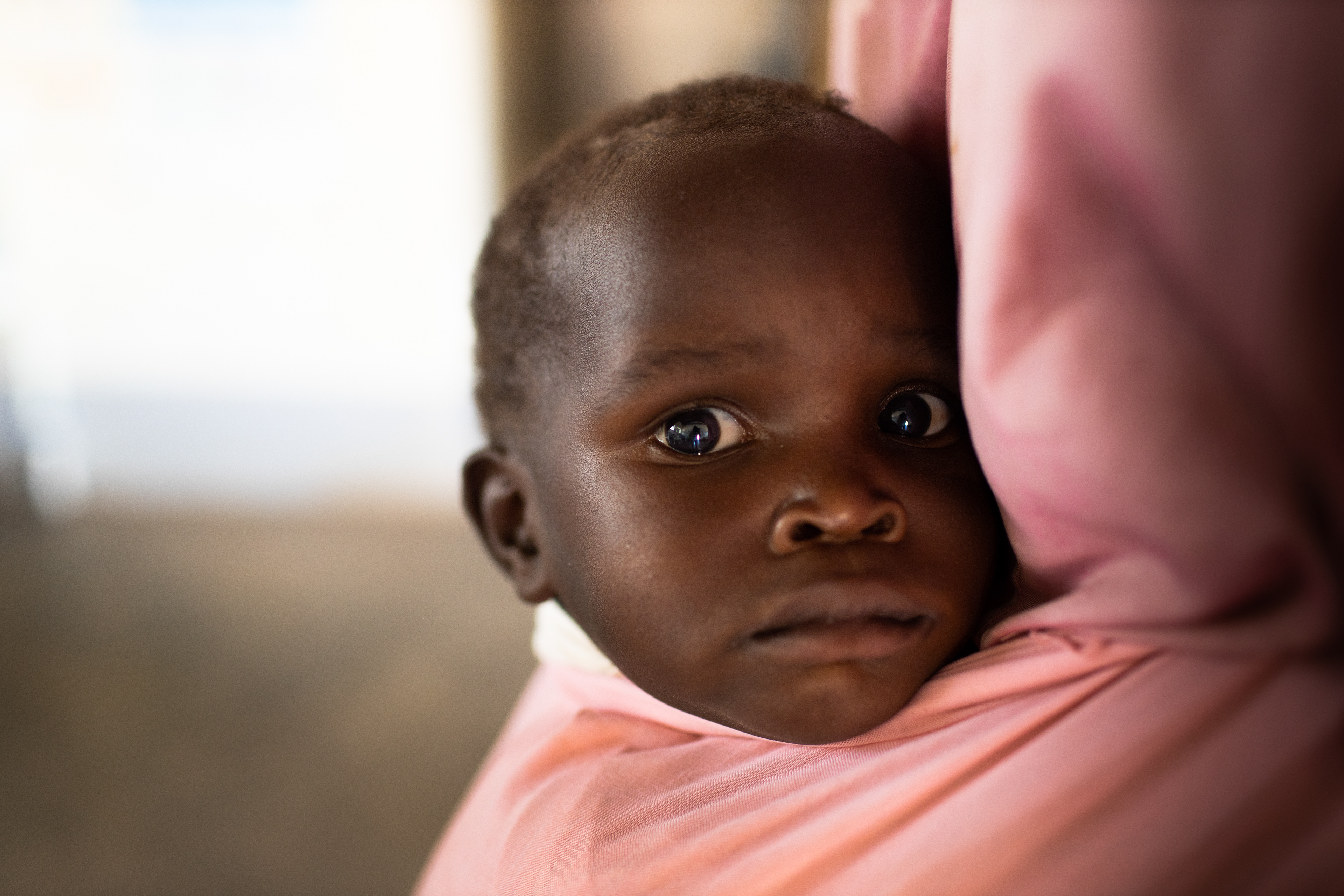
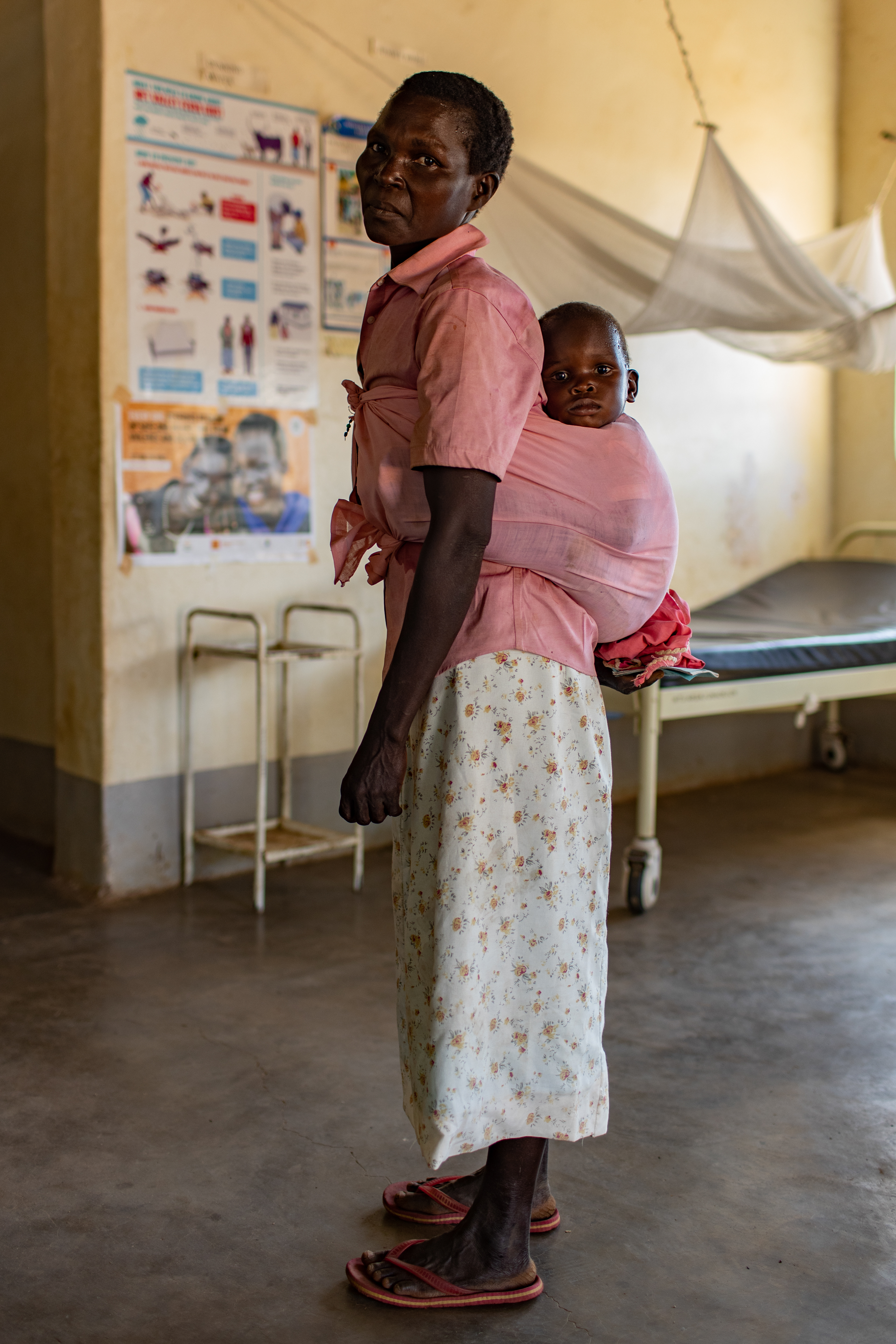
Isiry Scoria, a local Ugandan visits the health clinic with her 14 month old son in Imvepi settlement, Uganda on February 12, 2020.
"There has been a large increase of people coming into Uganda. Locals like myself, feel scared because the Ugandan government tends to use land of native farmers to house arriving refugees. If more refugees continue to come we fear we will begin to struggle for resources like land, healthcare, water access, and education."
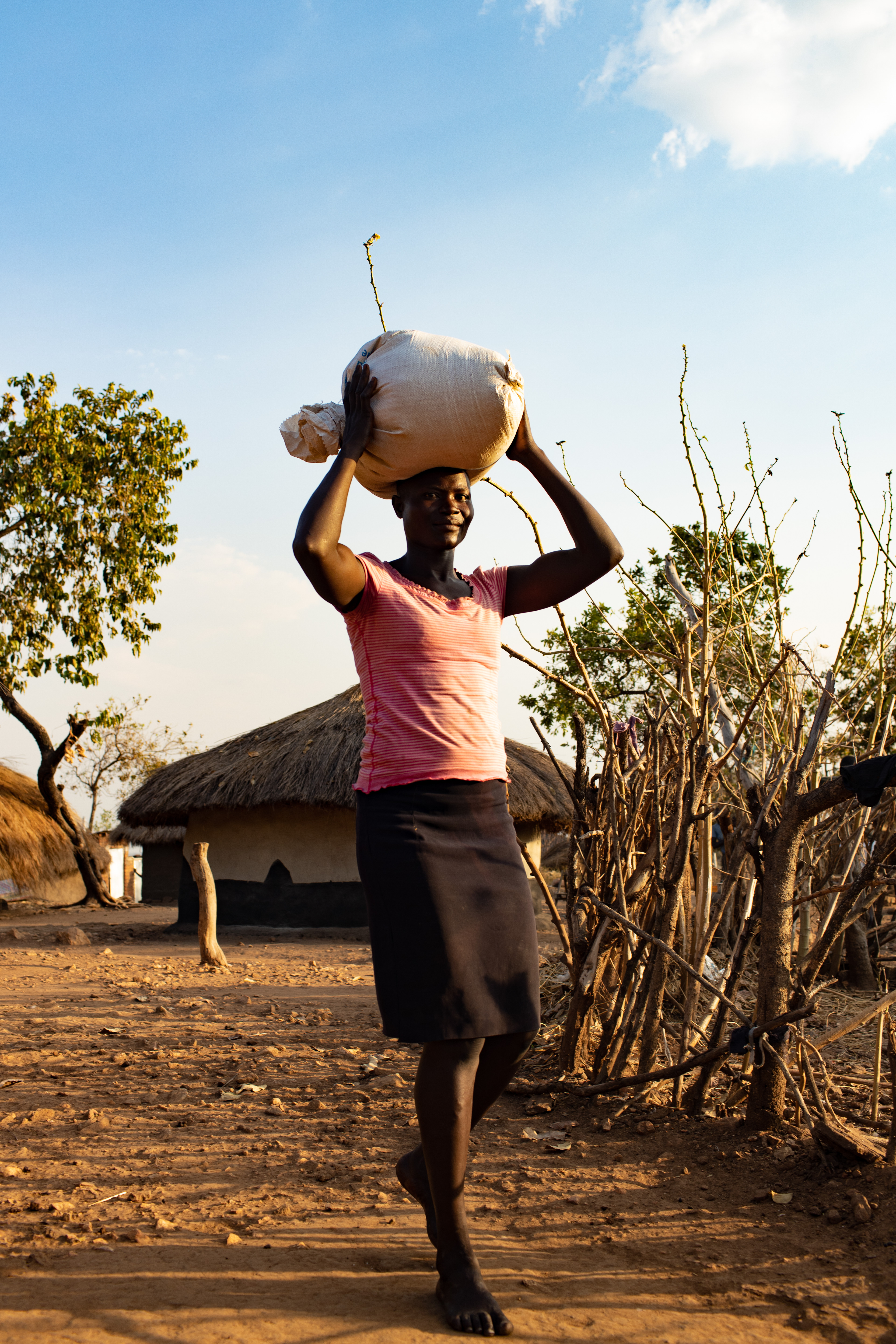
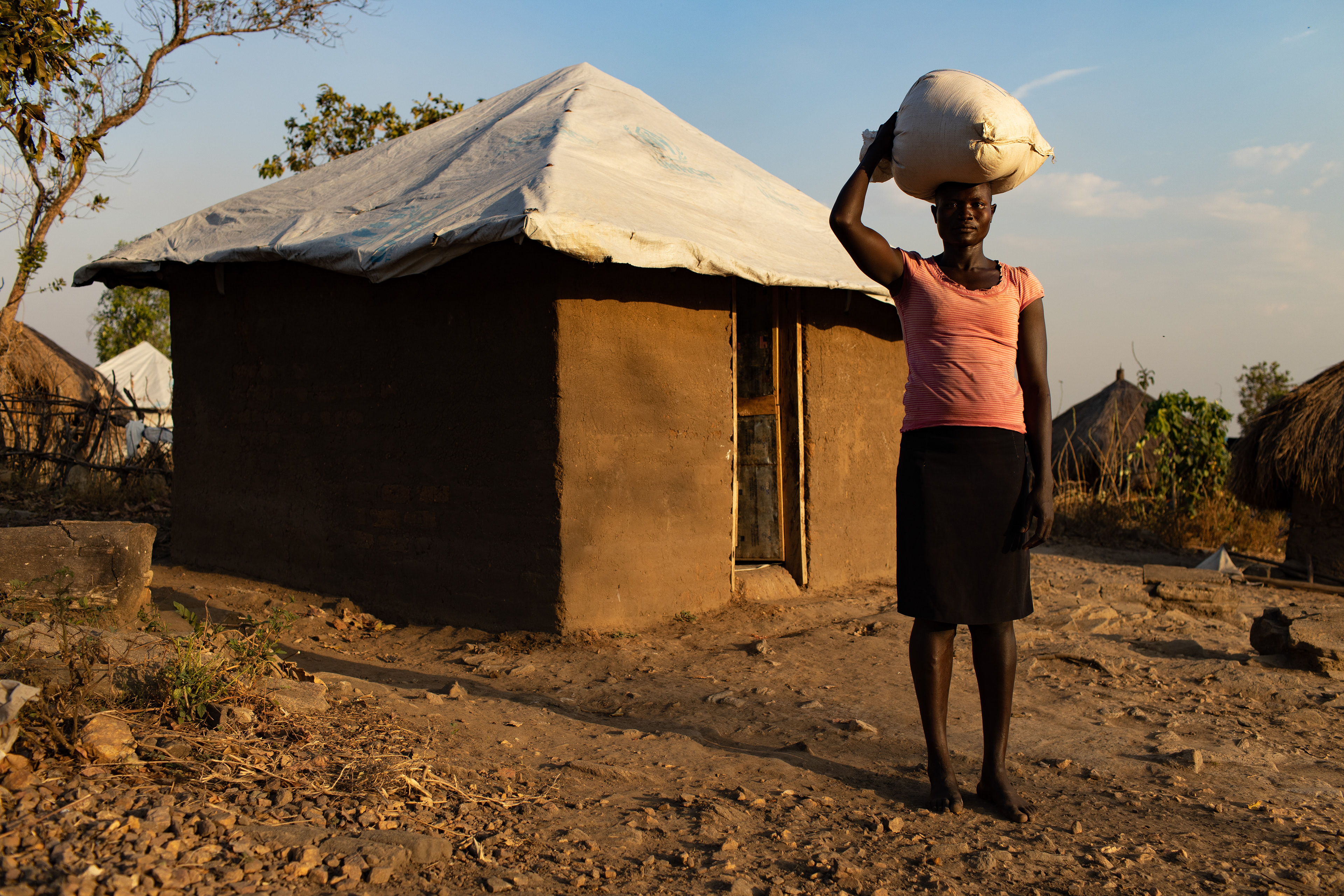
ries food on her head from World Food Program in the Imvepi settlement on February 13, 2020.
IJA is a single mother with two children. She built her home on a small plot of land with the assistance of UNHCR. She says, "I struggle to feed my two children. I often have to sell some of my food to have money for things like linens or other basic household things."
Adolescent girl holds an infant in a Imvepi Refugee Settlement in Uganda on February 15, 2020.
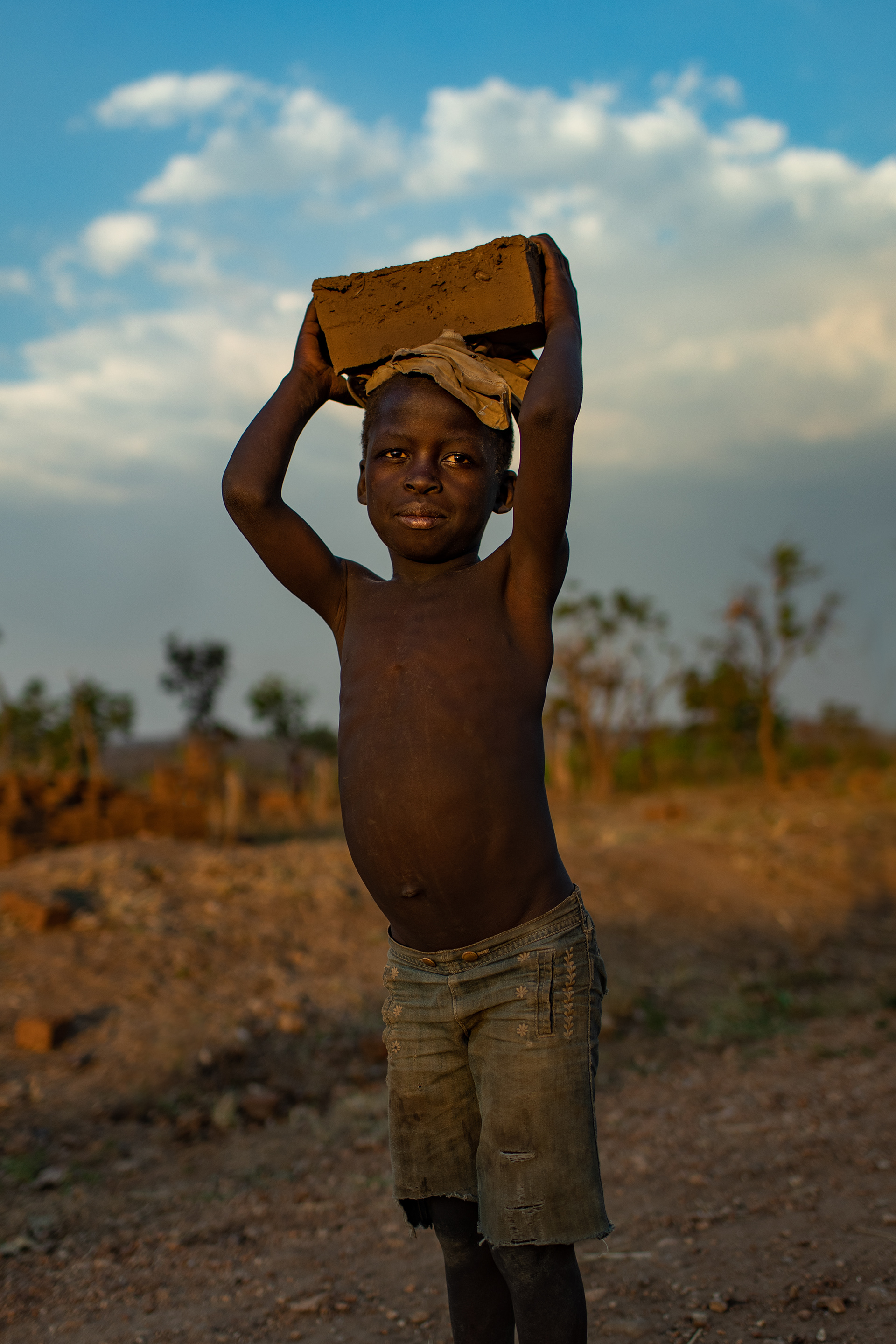
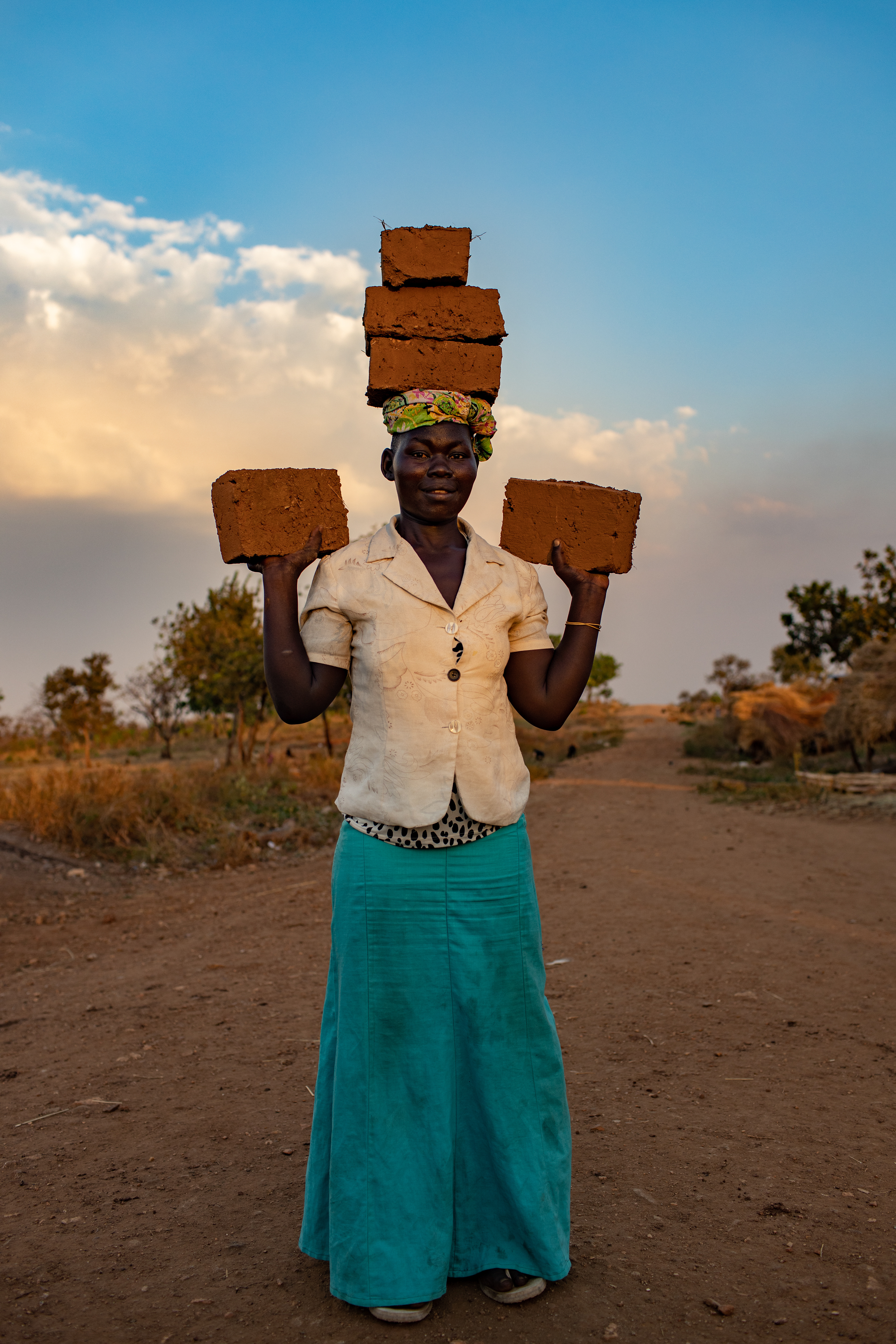
Young boy and woman carry bricks in a refugee settlement in Uganda on February 15, 2020.
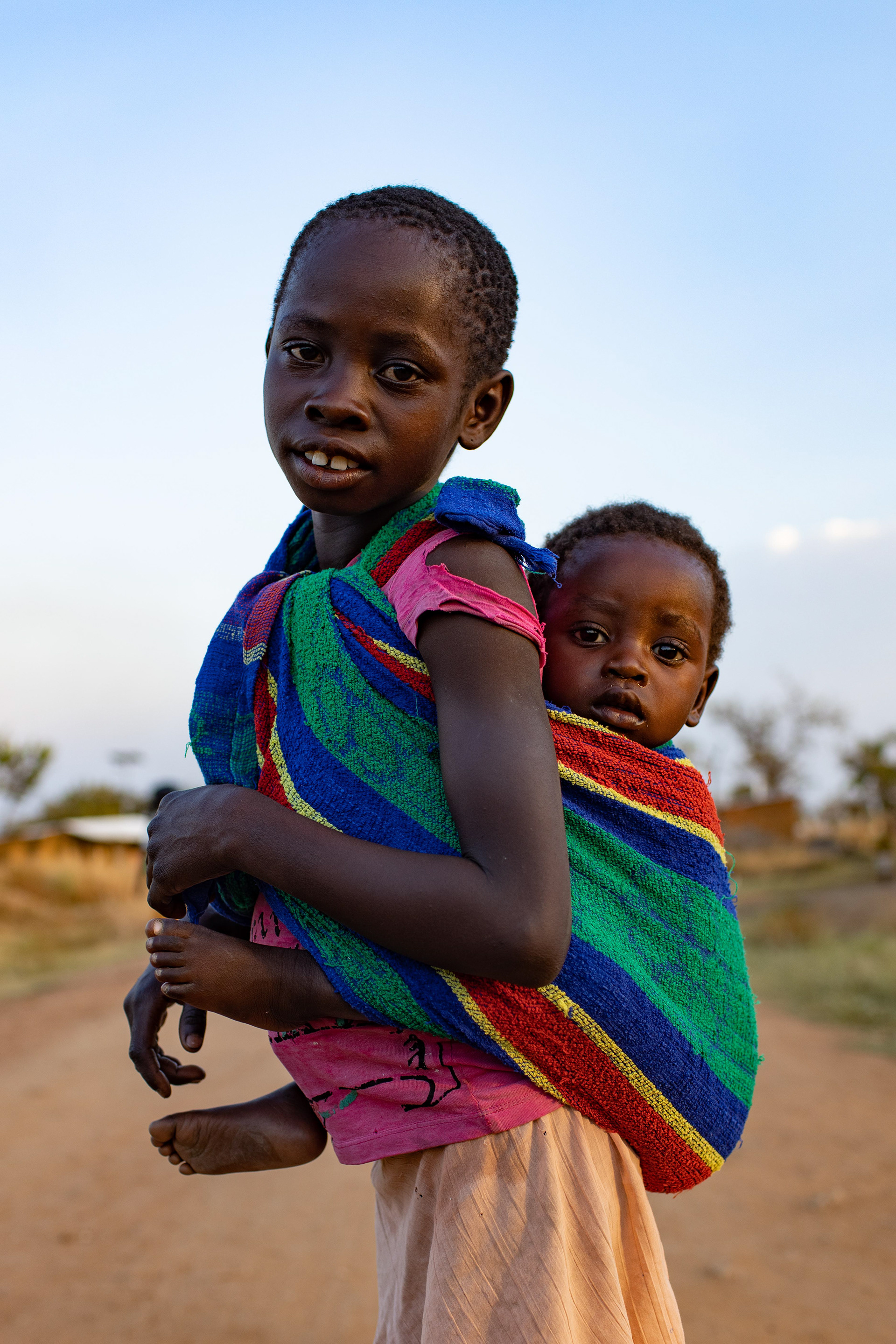
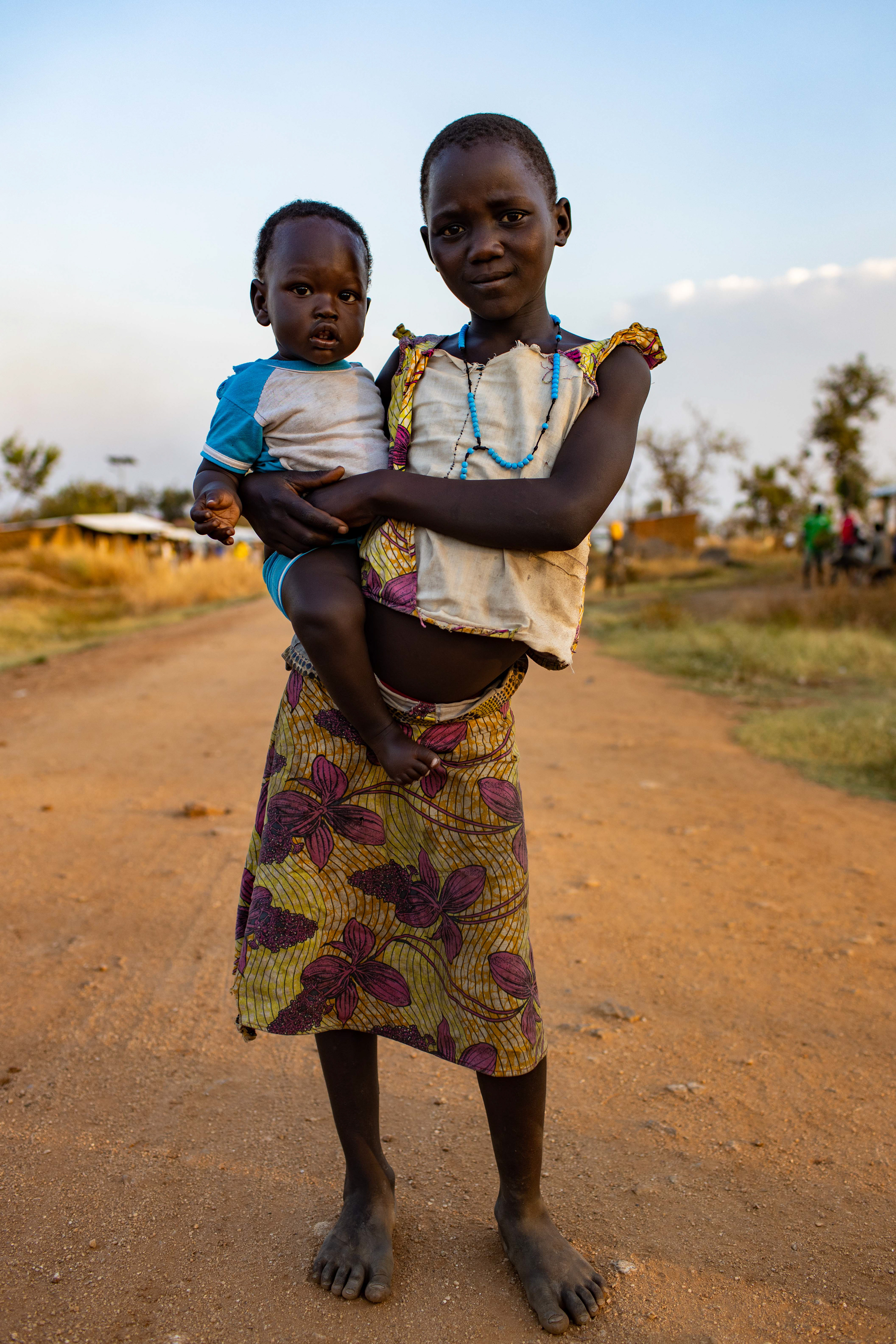
Adolescent girls hold infant babies in a refugee settlement in Uganda on February 15, 2020.
Over 80 percent of those fleeing South Sudan are women and children, with children making up 63 percent of the total South Sudanese refugee population. In the Imvepi refugee settlement, there is a high number of adolescent girls who are orphaned or are part of child-headed households with extremely limited means of meeting their basic needs and protecting themselves against abuse.
A South Sudanese woman carries firewood on her head to her village in the Imvepi settlement, Uganda.
“I only collect firewood with my neighbor and husband because finding wood can be difficult and unsafe for women. You must always be on guard due to the risk of being raped.”
This is what I heard from every woman I interviewed in the settlement during my time here. Several reported that there are men who offer to give them wood in exchange for sexual favors and some women have been raped and/or beaten while carrying wood.
Collecting firewood in many African countries is a huge burden on women. Lack of safe access to firewood can be life-threatening particularly in conflict situations. Women seek firewood often in arid areas already lacking adequate vegetation not only face the threat of rape but compete with other people who also need the resource.
Collecting firewood in many African countries is a huge burden on women. Lack of safe access to firewood can be life-threatening particularly in conflict situations. Women seek firewood often in arid areas already lacking adequate vegetation not only face the threat of rape but compete with other people who also need the resource.
Read the Uganda Refugee Response Monitoring Settlement Fact Sheet: Imvepi Refugee Settlement | June 2018
